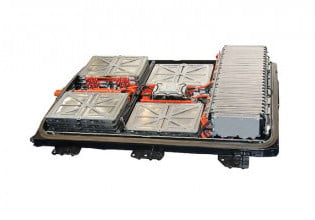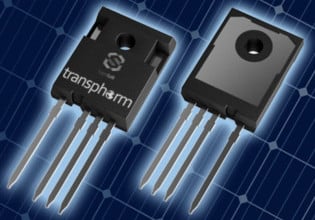Precision Thin-Film Chip Resistors offer Enhanced Performance
Vishay Intertechnology, Inc. today announced that it has enhanced its PTN series of precision surface-mount thin film chip resistors with a lower absolute TCR of ± 10 ppm/ degree C and tighter tolerances to ± 0.05%. Built using a self-passivated, moisture-resistant tantalum nitride resistive film technology, the Vishay Dale Thin Film devices offer high power ratings to 2W over a wide temperature range of -55 to +155 degrees C. The tantalum nitride resistive film of the PTN resistor ensures a moisture resistance level that exceeds MIL-PRF-55342 limits. This makes the device ideal for use in low-noise, high-precision control systems for military, aerospace, telecommunications, and industrial applications where moisture during operation or long-term storage may be a concern.
The PTN series is offered in 13 case sizes from 0402 to 2512 and provides a wide range of resistance values from 10Ω to 3MΩ, with nonstandard values available. Featuring a high-purity ceramic substrate, the devices' wraparound terminations offer an adhesion layer covered with a nickel barrier and solder coating and contribute resistance of < 10mΩ. Epoxy-bondable and lead terminations are also available upon request.
In addition to power ratings from 50mW to 2W, the PTN series offers low noise of < -25 dB, low voltage coefficients of 0.1 ppm/V, and voltage ratings from 75 V to 200 V. The lead (Pb)-free devices are halogen-free and RoHS-compliant without exemptions, and they conform to Vishay Green standards. The resistors are resistant to moisture at +85 degrees C, 85% relative humidity and 10% rated power; sulfur-resistant according to the ASTM B809-95 humid vapor test; and 100% visually inspected per MIL-PRF-55342.
Samples and production quantities of the enhanced PTN series devices are available now, with lead times of eight to 10 weeks for large orders. Pricing for U.S. delivery starts at $0.36 per piece in 1,000-piece quantities and varies by case size, TCR, and tolerance.






